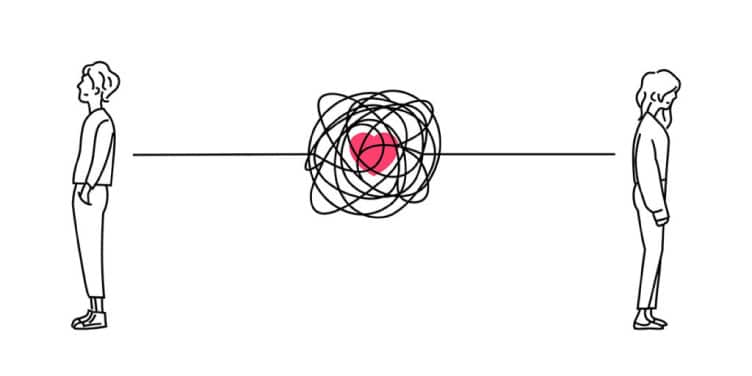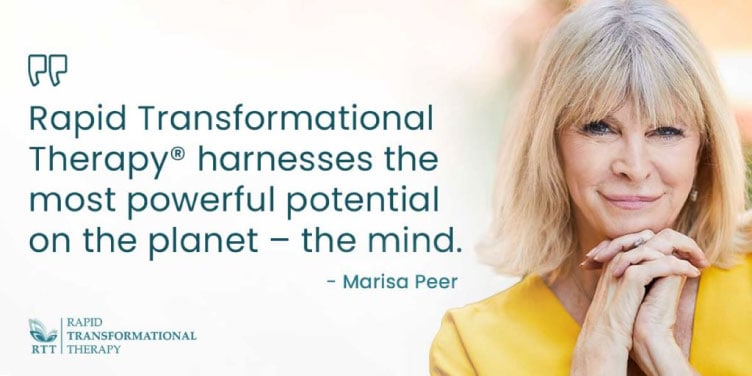All relationships experience ups and downs.
During the highs of relationships, it’s easy to feel the love. Everything your partner does is adorable and contributes to your deepening attachment.
The way their hair looks in the morning is attractive.
Their tendency to slurp their tea is an amusing quirk.
Yet when the lows arrive, the relationship begins to feel out of balance. Over time, differences between you and your partner spill over into how you feel about them.
Now their tousled hair reminds you of how untidy they can be.
Their tendency to slurp aggravates your already frazzled nerves.
In those moments, knowing how to fix a relationship can help you avoid the pitfalls caused by your differences.
After all, it’s normal to experience misunderstandings, tension, and miscommunication with your partner from time to time. You are both human—with your own strengths as well as weaknesses.
Each partner comes into the relationship with their own past relationship experience, beliefs about love, and varying needs for connection.
These differences have the potential to empower you as a couple or cause a rift between you. For example, you might find that your capacity for tidiness and order complements your partner’s less-than-tidy habits. Conversely, it could contribute to more housework, resulting in added feelings of stress and overwhelm.
If these issues are not addressed, after a while you might find yourself feeling lost, hopeless, or even heartbroken.
Well, the good news is, most seemingly broken relationships can be saved with the right approach.
At the end of the day, relationship mistakes offer you an opportunity to identify what isn’t working and develop the skills required to fix your relationship.
While learning how to fix a relationship, you will get to know the tools that help build love, trust, and intimacy. These tools will help you strengthen not only your romantic partnership but also every other relationship in your life.
In this article, you will learn:
- How to decide if your relationship is worth saving
- How to fix your relationship and rebuild trust using seven effective relationship behaviors
Is Your Relationship Worth Saving?

Relationships are a big part of our lives, and it’s only natural that after spending enough time in each other’s company, tensions begin to arise.
To put it simply, you prefer to do things one way, and your partner does it the other way. You expect your partner to fulfill certain roles, and your partner has their own set of expectations on how they should show up in the relationship.
Over time, you begin to clash.
If you don’t address the common relationship problems as soon as they arise, your relationship begins to break down. These could include issues such as boredom, growing apart, lack of appreciation, and co-parenting challenges.
Even some of the more serious relationship breakdowns caused by constant conflict, trust issues, cheating, and resulting trauma can be fixed.
By knowing how to fix a relationship, you can begin rebuilding trust and saving your union. All you need is the right tools and the commitment of both partners to resolve these issues.
By mastering relationship skills, such as open communication, compassion, commitment, conflict resolution, and even love, you can significantly improve your relationship.
Additionally, turning to a therapist for added support may very well spell the difference between separation and connection.
For instance, Marisa Peer has helped thousands of people master the skills they need to help their relationships thrive.
With that said, it’s important to note that even if you know how to fix a relationship, not all relationships are worth salvaging.
If you are experiencing abuse, the relationship could potentially be dangerous to your health and life. Staying in such a relationship could result in serious physical or psychological trauma that can affect your well-being.
Additionally, if your partner enjoys fighting for the sake of it, constantly pushes you away, chronically breaks your trust, or is not interested in committing to the relationship, it may be time to walk away.
After all, you deserve a relationship where you feel loved, appreciated, and secure.
So, ask yourself the following questions to determine whether or not saving your relationship is the right thing for you:
- Is your relationship free of emotional, verbal, or physical abuse?
- Do you both share similar values and goals for the future?
- Are you willing to forgive one another for past hurts and focus on rebuilding your relationship?
- Do you both have mutual respect for one another?
- Can you see yourself growing old with your partner?
If your answer is “yes” to most of the questions, your relationship is probably worth saving. The following advice will help you learn how to fix a relationship and rebuild trust.
7 Ways To Rekindle Your Broken Relationship For Greater Love, Trust, and Intimacy

Follow these therapist-approved recommendations to begin repairing your relationship and get it back on track:
1. Identify the challenges or mistakes in your relationship
You know that something doesn’t feel right about your relationship, but you might not be sure exactly where the breakdown is happening.
More often than not, it’s the situation—rather than your partner—that is challenging the relationship. So it’s important to approach your relationship challenges from the perspective that something, not someone, needs to change.
Start by taking the time to identify where things begin to go wrong when you and your partner argue.
Ask yourself, “What are the recurring patterns that stir up and perpetuate the problems in my relationship?” You can answer this question by thinking about your relationship problems and pinpointing what they have in common.
Some of the most common negative patterns include:
- Refusing to respond (e.g. “I don’t care,” “Whatever,” “This isn’t a big deal.”)
- Disrespectful body language (e.g. eye-rolling, sighing loudly, snorting)
- Aggressiveness (e.g. glaring, raised fists, shouting)
- Withholding important information that affects you both (e.g. financial burdens, health concerns)
- Trust issues (e.g. hiding phones, keeping secrets, lying)
- Relationship neglect (e.g. being too busy with career, kids, housekeeping, bills)
- Lack of intimacy and affection (e.g. hugging, holding hands, cuddling)
You need to know what’s wrong in the relationship so you can devise the best possible solutions for the situation.
Once you’re clear on the problematic patterns, you are ready to communicate it to your partner and get them involved.
2. Involve your partner
You are only one half of the relationship. Your partner is equally responsible for your relationship well-being.
By reaching out to your partner, you are recruiting an invaluable ally to help you work towards improving your relationship and rebuilding trust.
So here’s how you can lay down a path for your partner to do their part in restoring the peace:
- Let your partner know that your relationship is a priority and that you would like them to be involved in fixing it.
- Approach the conversation when you are calm and remember that you are on the same team.
- Share your thoughts and feelings about the patterns that may be contributing to your fallouts.
You’re more likely to succeed in rekindling your relationship if you make the decision to grow as a couple and come up with solutions on how to fix your relationship together.
3. Master communication skills

Effective communication skills are the foundation of a healthy relationship.
While arguing in a relationship can be a sign that you both care, it’s important to argue constructively.
Communication mistakes, such as putting your partner down, fighting just to be right, and refusing to listen, will only exacerbate the issues between you. It can trigger your partner’s defense mechanism, making them less likely to want to hear you out.
Ultimately, if you ignore communication issues in your relationship, it could lead to misunderstandings, broken trust, and lack of intimacy.
With that said, you can invite your partner to help you improve the way you communicate with them. Simply asking, “How can I bring up issues in a way that will encourage you to listen?” is a great way to start.
Next time you’re ready to talk to your partner:
- Be honest and open about your needs.
- Share your feelings without blaming your partner.
- Listen attentively to your partner without interrupting them.
- Ask questions to gain a deeper understanding of their perspective.
- Open up to your partner by admitting your mistakes and encourage them to share their feelings with you.
Improving your communication skills will help you and your partner solve your problems together, build trust, and connect on a deeper level. Furthermore, they play an important role in de-escalating the tension caused by the relationship breakdown.
4. De-escalate Tension
Oftentimes, when we are in the middle of an argument with our partner, we forget that we love them. It slips our mind that we’re on the same team. So instead of building bridges, we argue to win and conquer.
Voices are raised.
Doors are banged.
Not to mention, feelings are terribly hurt.
Truth be told, you probably didn’t walk into the conversation believing it would lead to a big fight. You were there hoping to solve an issue, connect, and feel like you matter.
So, why are you suddenly on the attack or defense?
Well, that’s because when you’re under stress, tension escalates, and the argument gains momentum. The bigger it gets, the less control you have over your emotions. This leads to the eruption of hurtful words and behaviors that put an end to the fight… and any hope of reconciliation.
During these fiery moments, it’s critical to diffuse the tension and focus on how to fix the relationship. Otherwise, you risk getting into a lose-lose situation.
Try some of these ways to de-escalate tension:
- Stick to the present. You’re more likely to reach a resolution if you don’t complicate the situation with unresolved issues from the past.
- Commit to mutual respect. It’s best to refrain from name-calling, shaming, or humiliating your partner.
- Don’t yell. If you feel unheard, draw your partner’s attention by saying, “I understand your perspective. Now, I’d like you to give me five minutes to share mine without being interrupted.”
- Take a break. Sometimes it seems impossible to continue the conversation. You both can agree to take a pause to calm down and come back to the discussion later.
It may be hard to keep a cool head and de-escalate tension when emotions are running high.
If you are finding it too challenging to argue with your partner constructively, consider turning to an RTT® therapist to help you.
RTT® is a technique developed by Marisa Peer, world-renowned therapist. It can help you identify underlying issues that may be causing your relationship breakdowns.
Through a combination of therapeutic tools, RTT® will allow you to release past hurts and emotional pain and regain control of your thoughts, emotions, and behaviors so you can rekindle your relationship with ease.
5. Create more positive moments

Believe it or not, there is a “magic ratio” for relationships.
Relationship researcher Dr. John Gottman found that a successful relationship has a 5:1 ratio balance between positive and negative interactions. That is, for every ONE negative moment in your relationship, it’s best that you create FIVE positive ones.
Positive moments ensure that you spend more time expressing love, rebuilding trust, and nurturing intimacy. The more positive moments you have, and the more you balance out negative ones, the happier your relationship.
Additionally, by intentionally creating positive moments, you make positivity a familiar experience in your relationship.
As Marisa Peer tells us in her rules of the mind, “If you want to succeed at any level, you’ve got to make what is familiar unfamiliar, and what is unfamiliar familiar.”
If having negative moments has become the norm, change that by including some of these positive moments in your daily interactions:
- Show affection. Whether you’re holding hands while watching TV or flirting while cooking together, consistent displays of affection remind you that you’re a couple in love.
- Appreciate your partner. The kindness, support, and help your partner offers you is an act of love. Acknowledge those moments by thanking them and letting them know that they add value to your life.
- Laugh together. It’s okay to be downright silly with your partner. If need be, buy a joke book and share some of the funniest jokes with your partner.
There is no end to the kind of positive moments you can have. Each of them contributes to rebuilding broken trust, repairing relationships, and restoring balance.
Include your partner in co-creating a list of positive moments that you can schedule and enjoy. After all, you’re trying to fix your relationship because you still love each other.
6. Remember the reasons you fell in love
Despite the current state of your relationship, you undoubtedly had reasons for falling in love, formalizing your relationship, and staying together this long.
Reminiscing about the old days reminds you of all the reasons you fell in love with your partner. It also strengthens your bond and takes you to a place where love was abundant.
Those days filled with magic may be long gone, yet they live on in your memories.
You can choose to time-travel on your own, but why have all the fun alone? By all means, invite your partner to sit and reminisce with you:
- In your mind’s eye, start by going back to the beginning, when everything was fresh and exciting.
- Tap into those heartfelt emotions by recalling every detail you remember—the sounds, smells, sights, feelings, and experiences.
- Finally, share your favorite moments with your partner and ask them to do the same.
There’s so much joy to be gained by taking this journey together. After all, your partner is still the same person, only now you know them even better.
At one point, being with them was a dream. So be grateful for the gift you received when that dream was realized, and thank your partner for this opportunity to share your life together.
7. Work on yourself

While it is true that you are one half of your relationship, you have the power to make a significant difference to its wellbeing and longevity.
Without a doubt, your relationship grows at the rate that you grow. As you begin to understand yourself and develop your relationship skills, you master the secret behind how to fix a broken relationship too.
In fact, going inwards to identify the causes of your triggers, annoyances, and defensive actions may be just what you need to do to fix your relationship. What you find could help you put your relationship demons to rest, once and for all.
To discover more about how you may be contributing to your relationship breakdown, try asking yourself these questions:
- Why does it upset me so much when my partner does that?
- Am I upset at my partner or am I upset because I did not stand up for what I believed in, overstepped my own boundaries, or did something I didn’t want to do?
- Does my partner’s behavior bother me personally, or am I upset because I saw my mother, sister, movie star, etc., react to this behavior?
The answers you find may help you identify root problems that are contributing to the issues in your relationship.
Whether you realize it or not, painful experiences from childhood or past relationships may result in fear of love, fear of intimacy, fear of rejection, self-sabotaging, and commitment issues. These can include withholding affection, avoiding physical intimacy, trust issues, neediness, and wanting to escape the relationship.
If you’re finding it hard to overcome some of your personal challenges on your own, you can always turn to a therapist to help you.
Love happens quickly, but erodes slowly.
The 21-Day Meaningful Relationship Challenge
If you have a tangible and focused goal to rebuild your relationship to feel real and authentic you may have been struggling in the past with exactly how to manage this on your own, and with little guidance. Struggling in a relationship is sometimes a taboo topic that cannot be discussed with love ones in an open and constructive manner. If you find this is you, and you want to have those meaningful discussions that can help you break down your limiting beliefs around relationships, and learn how to cultivate a meaningful connection with your partner, than make sure you join Marisa Peer’s 21-Day Meaningful Relationship Challenge. Click the banner below to find out more and sign-up.

Now that you know how to fix a relationship, you can consciously work towards rebuilding trust and deepening your connection.
By consistently correcting all the little things that go wrong, you can prevent your relationship from breaking down.
After all, neglect is the ultimate enemy of relationships. So make sure to connect with your partner, check-in with them on how they feel about the relationship, and work together towards building bridges.
In the end, a love that endures is the greatest treasure of all.


